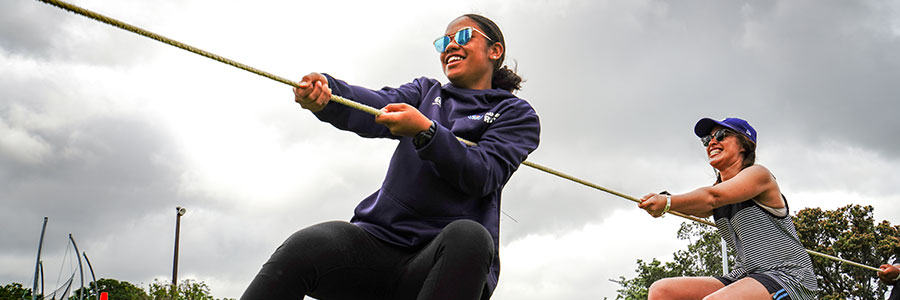Team Building Why it matters

Posted on January 15, 2021 by Delyth Morgan-Coghlan (Del) and Clare Parkes, Organisational Design Director. First published on LinkedIn, February 2020
In this article we pose the question Why Does Team Building Matter, look at how team building has changed and how it can help in today's dynamic workplaces.
It's been around 30 years since Team Science was last trending through companies and organisations, way back before trending was even a word!
Back in the day the likes of Belbin, with its' 'Plants', 'Shapers' and 'Completer Finisher' team roles or Edward De Bono's Six Thinking Hats, (heaven forbid you'd be labelled as a Red Hat - Emotion and Ego brain type!) provided employees with an understanding of self and how and why people fitted in a team in order to accomplish tasks in the workplace.
Young and promising talent would be whisked off on management development retreats and immersed in training programmes to provide them with a foundation course in Management where they'd learn how to grow, develop others and fit into a team.
But the nature of teams, back in the day, were significantly different from what they are today. By and large, you worked in the same team for long periods of time, making it relatively easy to get to know your work buddies and accomplishing tasks within your department. Trust and understanding was built over time and everyone lived a happy team life.
There have been a few intervening attempts at creating better understanding of teams including Lencioni's 5 Dysfunctions of a team, and Google's Aristotle Project on what they believed made great teams work. And pockets of teams from Execs to functions have entertained off sites and sharing personal insights in the aim of building trust.
Today's teams, or scrums or tribes are expected to function very differently, with individuals regularly stepping in and out of multi-disciplinary or cross-functional groups to inject ideas into projects with lightning speed, reporting back on actions completed in a daily quick fire huddle and team members leaving the group just as fast as they arrived.
Employees are required to be Agile, Lean, Sprinters, Quick Thinkers. Adaptable and highly energetic. There is no pause button. No time to build relationships and deep understanding. It's go, go go!
But as the Agile manifesto states "individuals and interactions are valued more than tools and processes". For Agile, Lean or any other form of continuous change organisational framework to be successful, the people working in it must practice and become experts at creating the right mindset and living the right values otherwise it won't work.
So after 30 years in the wilderness, Team Building is back! The benefits of regular, quick team challenges is clear. They encourage and highlight essential behaviours - trust, communication, openness and understanding of self and others, learnt and practiced in a way that suits today's context.
Employees who understand each other, can build trust quickly with each other, are confident enough to communicate in an open, ego-less workplace, will thrive in cross functional project teams and will seamlessly hop from one project to another without slowing the pace of progress and thus deliver on the framework's promise – value at speed, agility to adapt, and customer first at all times.
Team Building has a purpose again and is probably more important than ever before.
"Coming together is the beginning, keeping together is progress, working together is success."
Talk to us about your team building objective and we'll come back to you with a custom activity or workshop to help you achieve progress.